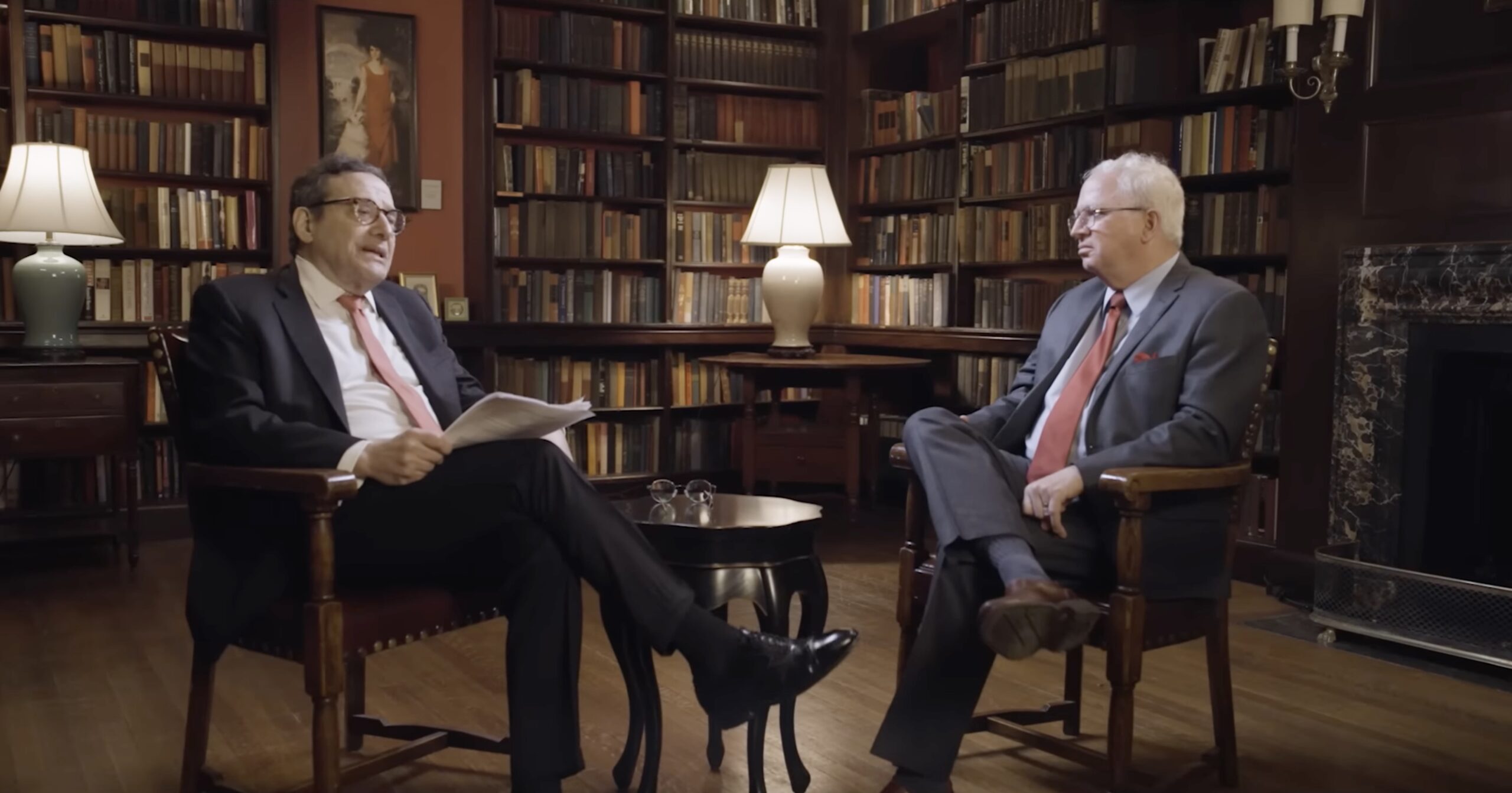Claremont Institute’s Tom Klingenstein and John Eastman Discuss 2020 Election Fraud in New Interview

Chairman of the Board of the California-based conservative think tank the Claremont Institute Tom Klingenstein has released the first of a three-part interview series with former Trump lawyer John Eastman discussing voter fraud in the 2020 presidential election.
[embedded content]
In the interview, Eastman, who served as a law clerk to Supreme Court Justice Clarence Thomas and is the founding director of the Claremont Institute Center for Constitutional Jurisprudence, gives an account of his work for the Trump White House.
Eastman gained notoriety following the 2020 presidential election when he advanced the argument to President Trump that then-Vice President Mike Pence had the constitutional authority to delay and potentially block the certification of electors.
In this first part of the interview series, Klingenstein presses Eastman on his claims of widespread voter fraud in the 2020 election.
Eastman provides a detailed account of how alterations to state election laws prior to the 2020 election by non-legislative actors, such as secretaries of state and state judges, resulted in thousands of mail-in and absentee ballots being counted with weak signature verification processes.
The amount of fraudulent ballots cast in 2020, Eastman argues, surpasses the margin between Trump and Joe Biden in several key swing states, including Georgia, Wisconsin and Pennsylvania.
In states and counties where recounts were done, Eastman claims that these were insufficient for uncovering fraudulent ballots as they did not involve a systematic audit of signatures and voter rolls.
Responding to criticism that he is “crazy and conspiratorial,” Eastman says in the interview that just because a theory seems paranoid doesn’t mean it’s false.
“I’ve tried to be very careful on saying things that I could confirm or had fairly strong circumstantial evidence to support,” Eastman said.
Eastman, who was encouraged to resign from his professorship and position as Dean at Chapman University School of Law after the controversy surrounding the 2020 election, said that he has been targeted by people burying metal spikes at the end of his driveway, throwing dog feces at his house, and spray painting “Eastman’s a traitor” on his street.
Klingenstein, who is a part-time Maine resident, has previously gotten involved in the state’s political scene over concerns about Maine’s education system.
After encountering former Bowdoin President Barry Mills at a golf course, Klingenstein helped finance a National Association of Scholars report called “What Does Bowdoin Teach?” which condemned the progressive ideology of the liberal arts college as “antithetical to the American experiment.”
The report critiques Bowdoin’s curriculum as “frequently incoherent and trivial,” citing a course that was cancelled due to lack of student interest entitled “Queer Gardens,” a survey of the horticultural achievements of “gay and lesbian gardeners.”
This past November, Klingenstein wrote an essay entitled “Ban Pornography in Maine Schools” for Minding the Campus, a publication focused on opening up conversations about reforming America’s universities.
In October of last year, Klingenstein helped fund an ad campaign through the Maine Families First PAC exposing the content of pornographic books in Maine’s public school classrooms.
Also read:
This article has been archived for your research. The original version from The Maine Wire can be found here.


